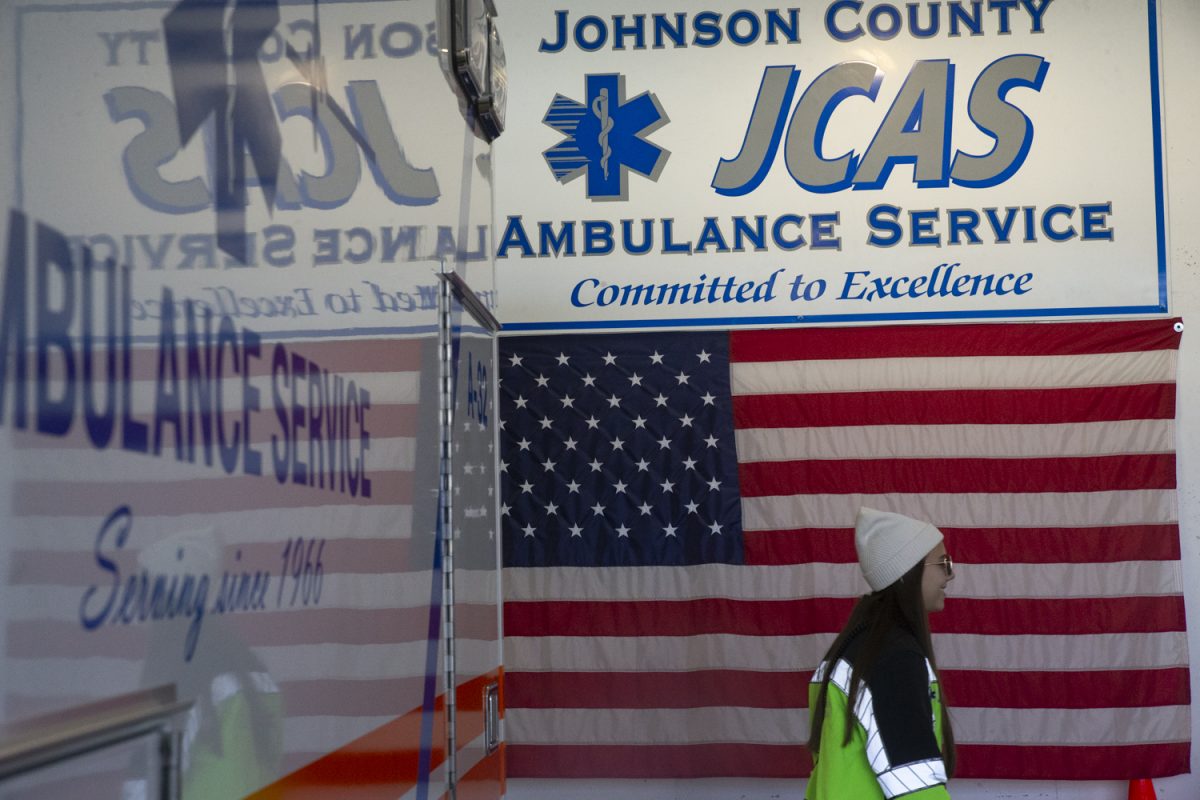Although Johnson County prides itself on its medical strengths from the University of Iowa’s world-renowned health care facilities, there are some emergency medical services that require a more human, connective approach that traditional emergency service responses cannot always provide.
Johnson County’s exciting Mobile Integrated Health, or MIH, program has been providing this new approach since its official launch on July 1 this year.
The program was launched in a joint venture between Johnson County Ambulance and UI Health Care to bridge gaps in residents’ health care needs while also reducing the number of unnecessary EMS responses, in turn reducing health care costs.
The MIH program employs county paramedic Michael Mothershed to achieve these goals. Mothershed, who is considered an advanced practice paramedic, has been equipped to provide individual preventive and primary care and identify social determinants of client health, such as financial and transportation barriers.
Mothershed particularly responds to residents who continuously call EMS services to identify their health needs and prevent their possibly unneeded emergency calls.
As Mothershed explains, these health needs can amount to an extensive list.
Mothershed said he provides, “home safety assessments, fall risk assessments. At home, we can provide things such as immunizations, patient health education, connection to local resources, short term care, coordination, things of that nature.”
In identifying social determinants of client health, Mothershed can also help to bridge health care gaps.
“For instance, if somebody has transportation or financial affairs and cannot get into a clinic to receive a certain injection or to receive lab work, I can pick that medication up, or those lab work materials [and] go to their home and save them the trips to the hospital,” he said.
Mothershed is able to identify clients primarily through a charting program named ESO, which marks residents who have been encountering EMS over certain limits. In isolating these names, he is able to begin his search as to why these residents repeatedly run into EMS.
“I kind of become an investigator,” Mothershed said.
Thomas Striegel, the medical director of the program, described how interest in the program began in 2019, but it quickly faded with the widespread issues of the COVID-19 pandemic.
That was until EMS division chair Azeemuddin Ahmed offered Striegel the role of medical director in 2022. Striegel was identified as a worthy candidate due to his past experience as a Johnson County paramedic.
“So, it wasn’t until there was the combined interest between the University of Iowa and Johnson County Ambulance Service that we moved forward and made this happen,” Striegel said.
As of Oct. 23, MIH has responded to 66 total clients with 15 being managed currently. These numbers have helped to decrease unneeded EMS calls throughout the county, but the surge in calls has brought its own set of challenges.
RELATED: How Johnson County Ambulance Services adapt for game day
“I’m just one person, so currently, I’m tracking the neighborhood for names, and I’m actually involved in the active care of about 15 clients right now,” Mothershed said. “So, that keeps me pretty busy managing 15 separate people.”
MIH hopes to establish a training program in-house to educate and onboard more community paramedics.
“We’ve discussed there are 10 individuals at least every day that we could look at maybe discharging from the emergency department if we add the staff to check in on them and avoid an admission,” Striegel said.
Striegel described the unexpected challenges the clients themselves have been facing.
“One of the surprises for us was identifying that a common factor, regardless of health needs or mental health needs or use disorders, is that most of these individuals struggle with social isolation,” he said.
In May of 2023, the Surgeon General’s office released an advisory declaring loneliness to be a nationwide social epidemic.
“We’re still working with a system to help address that,” Striegel said. “It’s a very complex issue and clearly it isn’t the type of problem you can just prescribe a pill. It requires sitting down and having discussions and meeting people where they are.”
Board of Supervisors Chairman Rod Sullivan described the program’s value from a wide county perspective.
“Emergency services react to whatever situation they’re given. And we know from police and fire that if you can do some things upstream to possibly not have something happen in the first place [such as] preventative medicine, that can go a long way toward improving life in the community,” he said.
Sullivan shared his excitement over MIH’s progress.
“Obviously the program is new, and we’ll have to continue to monitor it, but so far, it sounds really good, and we’re really proud of our ambulance department for being so forward thinking,” he said.



